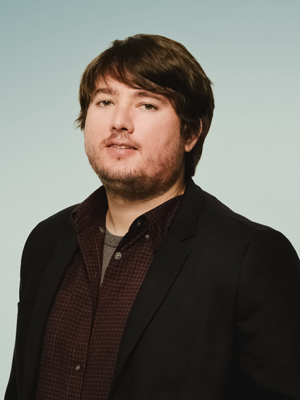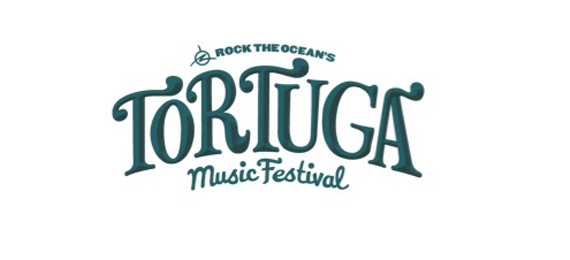

AJ Niland. Photo: Chad Riley.
This weekend (April 11-12), Ft. Lauderdale, Fla., will host Rock The Ocean’s Tortuga Music Festival. The country music event will double in size for its third year, reaching its maximum attendance record of 85,000 over the course of the weekend, according to AJ Niland, co-founder and chairman of HUKA, the entertainment company behind the festival.
HUKA came in as the creative visionary to curate talent and develop the event alongside Dot Records’ GM Chris Stacey, who is also founder of the non-profit conservation organization, Rock the Ocean—a stakeholder in the event.
“The conservation aspect of Tortuga was conceived by [Chris’] passion,” said Niland via phone from the festival site in Florida. “Chris and his team execute the programming for the Conservation Village [exhibitions throughout the weekend] and distribution of conservation funds.”
Last year $100,000 was raised for conservation efforts.
This year VIP ($799) and Super VIP ($1,299) attendees will be treated to the largest menu of luxuries available. For 2015, those include a swimming pool, art displays, and furniture, and stadium suite-style cabanas overlooking the main stage. Full commercial waterslides will also be available.
The artist catering tent will feature a glass wall looking out on the beach stocked with jet skis available for use. Artists enjoying those amenities this year include Kenny Chesney, Zac Brown Band, Jake Owen, The Band Perry, Little Big Town, Trace Adkins, Josh Turner, David Nail, The Mavericks, Colt Ford, Chase Rice, Sam Hunt, Frankie Ballard, Will Hoge, Chase Bryant, The Cadillac Three, Old Dominion, Maddie & Tae, Brooke Eden, Dylan Scott and Drake White.
“Even though Tortuga is a country music festival, we also tapped acts outside the country genre that we feel complement the lineup,” said Niland. Those acts include Nikki Lane, Doobie Brothers, Judah The Lion, Sublime with Rome, Dirty Guv’nahs and The Big Fire.
Niland continued to discuss the origins of his company, the festival’s environmental impact, and what the future may hold in the Q&A below.
 On improving operations year after year:
On improving operations year after year:
Niland: We’re constantly making tweaks to improve the operation. We make a pretty big investment into year-one. As an organization, we generally don’t start very organically. We tend to launch projects with very large talent and very expensive site builds. This year we’re adding the pool.
The lessons we’ve learned is from feedback from artists and fans or internal. We’ve got festivals in their sixth year, and we don’t ever stop tweaking. The first couple years of a festival, cash is tight. You’re planning for a loss to hopefully rapidly grow attendance. The goal is to become profitable between years 3-5. In those times you can start to spend more, but until you’ve reached a point that you’re sold out, it’s difficult to call your site set. Until you reach the maturity of the festival, your goal is to make tweaks to accommodate more sales.
Background and HUKA:
I’m the co-founder of HUKA, chairman of the company and the Chief Experience Officer. HUKA started in 2004 and is based in New Orleans, La. Our first major festival was the Hangout Festival in 2010. My job is to run the direction of the company as a whole. We do an average of four major festivals a year in addition to regional concert promotion for all genres, mostly club and theater level. We have a full-time staff of 30, and a myriad of part timers. Our core festival staff travels to manage security and specific projects. At each site, we’ll have upwards of 1,000-1,500 hourly laborers during the events.
On last minute concert site preparations:
We’re pretty far along from a week ago. The site is pretty much deconstructed from a public beach/city park to a concert venue. Steel and scaffolding is moving around—a lot of heavy lifting. We’re moving light posts, signage for parking lots. Stages are going up.
On planning a festival:
It starts about 12 months out. We’re already on next year—booking talent. It starts with stage layout. Then we build out to cover event needs and cool features. We’ve been known for quite some time for having pretty crazy amenities that go above and beyond other festivals. Hangout Fest was the first time we implemented features with VIP and elevated the GA experience. We have full commercial water slides and zip lines at various events. Then we place bathrooms, concessions, bars, etc. At the end we have the design site. The next step is programing the stages. Marketing is all done in-house. Then it comes to implementing. We’ll arrive anywhere from three weeks to three months to do land work if needed.
On hiring outside consultants:
The very first year we bring in safety and traffic engineers from experienced firms. Those engineers are part of the initial design with production management (sound, stage lighting, stage labor), site management (fences, porta-potties, trash cans). The safety liaison is over security and medical. There’s also a festival relations staff for handling our own festival staff lodging, travel, etc. in addition to artist hospitality.
On environmental challenges:
For any site, we make sure we leave it as we found it. Tortuga (Spanish word for a turtle) is even more challenging because this area happens to be a turtle habitat. Tortuga is a benefit for ocean awareness and turtles are protected species. We go the extra mile to make sure nothing on site endangers their habitat, working very closely with local wildlife authorities as well as universities and research institutes. For example, structures and fences are built in such a way to accommodate any turtle who has come ashore—we’ve got a whole emergency plan built around those scenarios. It is still early in the season for turtle nesting, but we have a team who searches the shoreline through the night before giving us the all-clear each morning.
On future plans:
The idea was to grow this to multiple sites for the same cause. The priority right now is to make sure Tortuga succeeds. Once we feel comfortable at Tortuga’s maturity, we’ll look forward to other events. In a lot of respects, we’re going into this year with a new sense of sight. This year is when we can really take our notes and tweak for the future because we can’t go any larger than we are now.

About the Author
Eric T. Parker oversees operations and contributes editorial for MusicRow's print magazine, MusicRow.com, the RowFax tip sheet and the MusicRow CountryBreakout chart. He also facilitates annual events for the enterprise, including MusicRow Awards, CountryBreakout Awards and the Rising Women on the Row. eparker@musicrow.com | @EricTParkerView Author Profile


